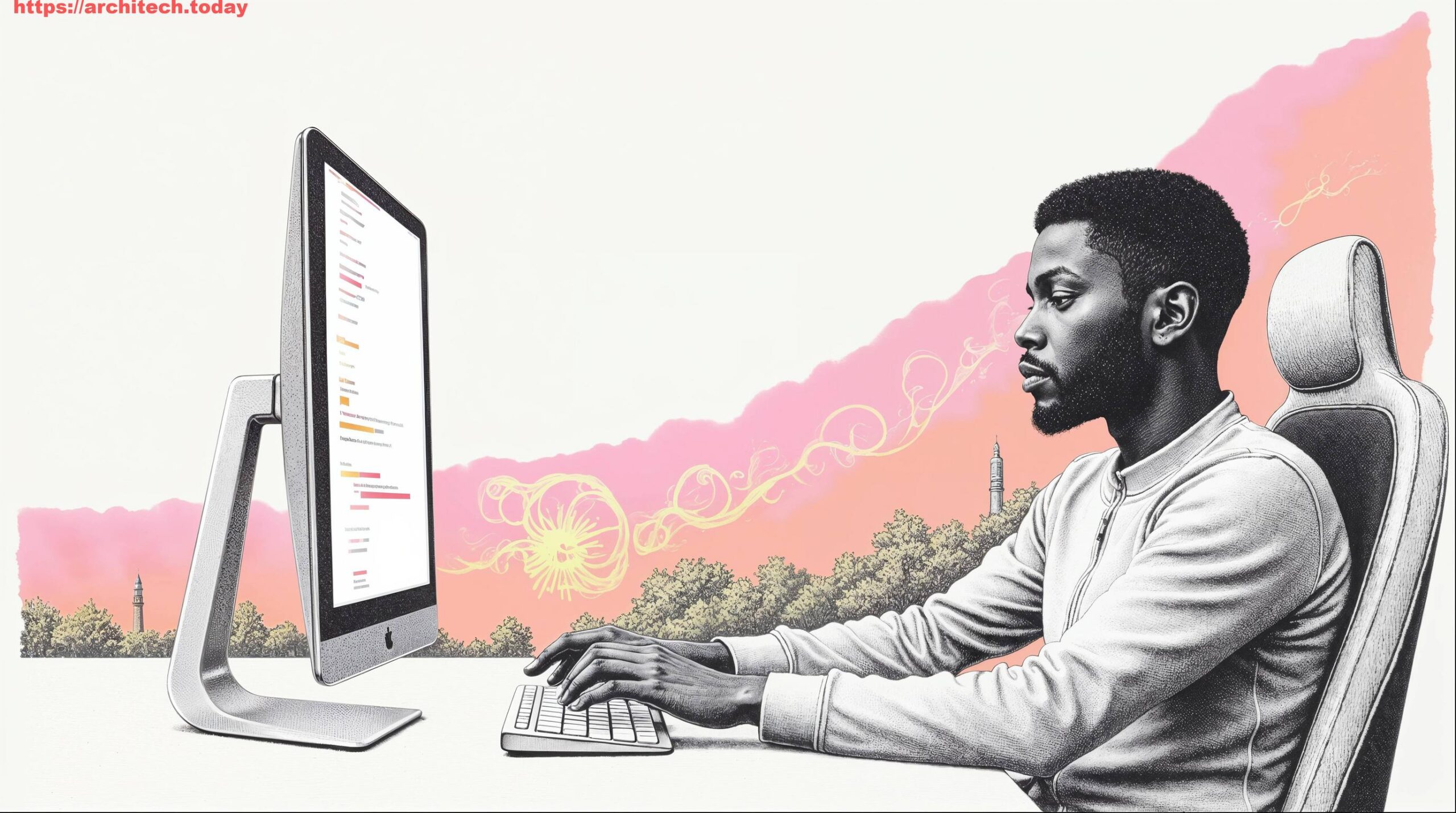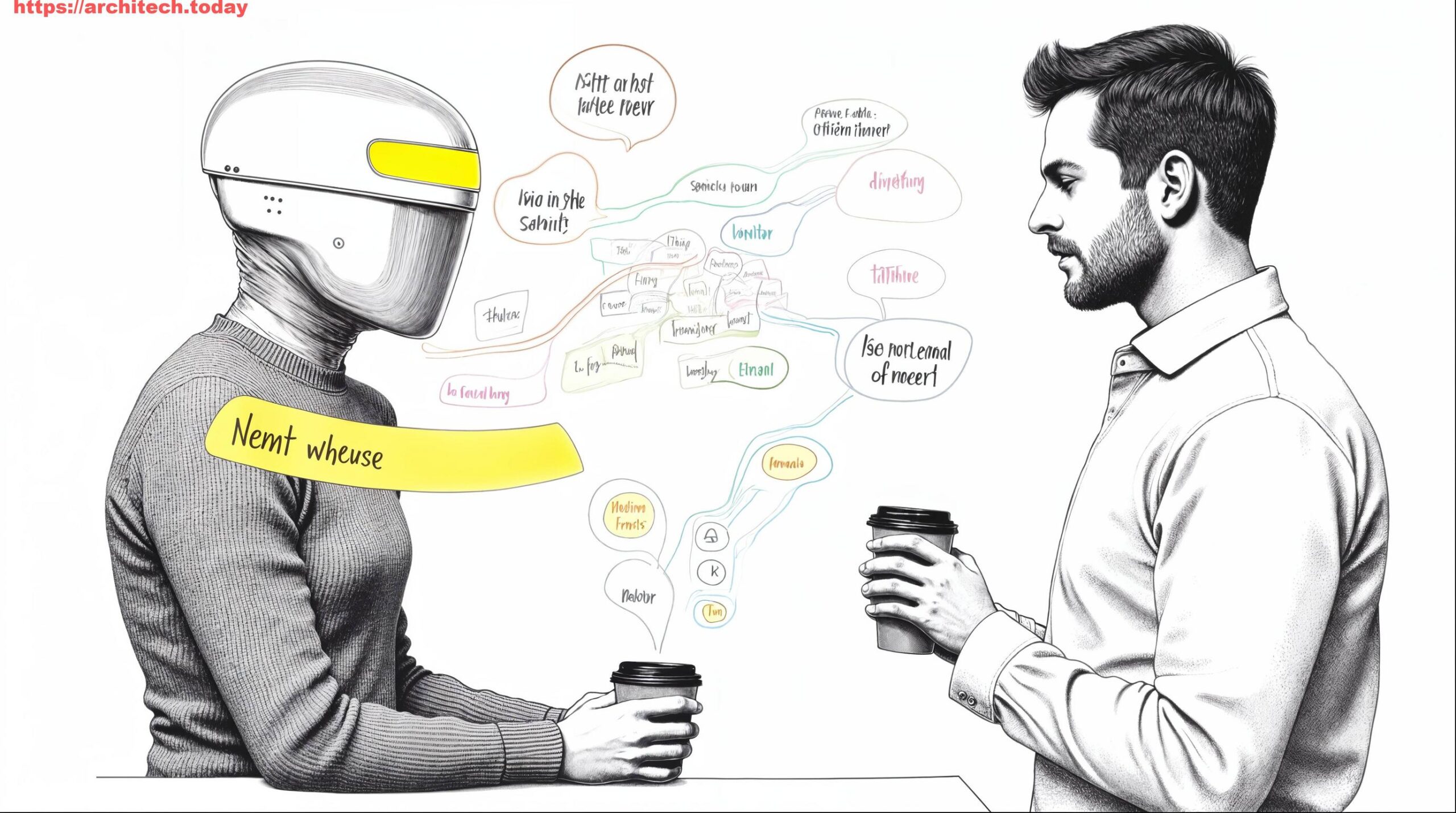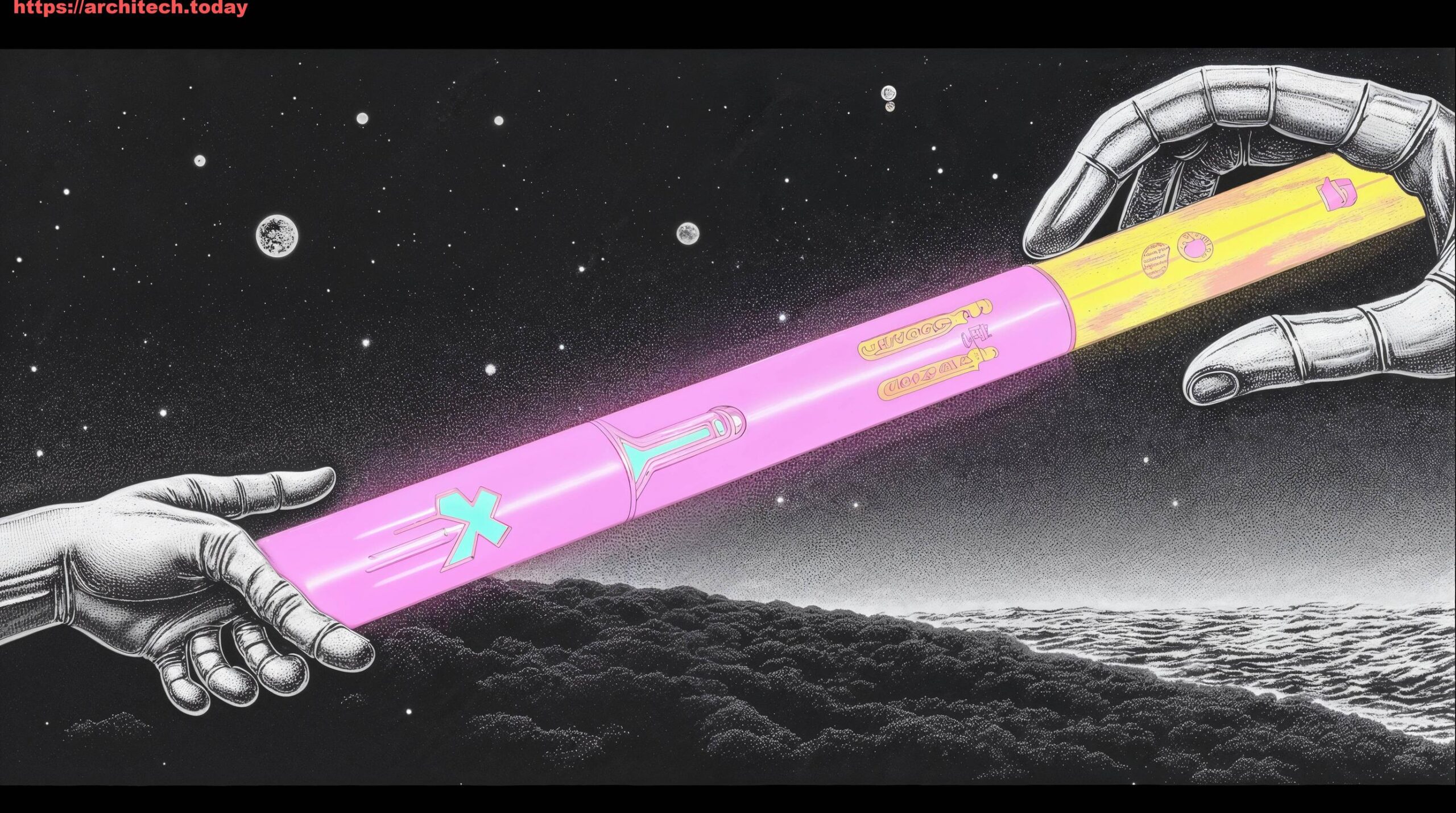Imagine it’s 2030, and your AI assistant has already outlined your project plan over your morning coffee, highlighting potential roadblocks before you’ve even opened your laptop. This isn’t science fiction; it’s a future rapidly taking shape, and it’s sparking one of the most pressing questions in the professional world: Will Artificial Intelligence (AI) eventually automate so much that the project manager (PM) role changes drastically, or even disappears?
For project managers and business leaders curious—or perhaps a little anxious—about the long-term career impacts of AI, this piece is your roadmap. We’ll delve deep into the evolving landscape of project management, dissecting what AI can do today, what it might achieve tomorrow, and crucially, what uniquely human skills will not just endure but become even more vital. Our aim is to provide reassurance through insight: yes, things will change; no, you (the human) aren’t going away—and here’s how you remain invaluable. Get ready to contemplate and prepare for this exciting, human-centric future.
The Project Manager’s Toolkit: Today vs. Tomorrow (AI’s Current Footprint)
Just a few years ago, the idea of AI assisting in project management felt like a distant dream. Today, it’s a tangible reality, quietly revolutionizing how projects are planned, executed, and monitored. Think of the traditional project manager, often buried under a mountain of spreadsheets, Gantt charts, and status reports. Their days were a relentless cycle of task assignment, tracking, and trying to predict the unpredictable. Now, picture a more efficient, insight-driven workflow. The shift is akin to upgrading from a dial-up modem in a 5G world; the core function is the same, but the speed, precision, and capabilities are light-years ahead.
AI is already automating a significant portion of the “grunt work” that once consumed a PM’s valuable time. This includes sophisticated scheduling optimization, where algorithms can instantly create and adjust timelines, factoring in dependencies, resource availability, and even historical performance data far more accurately than any human could manually. Resource allocation is another prime example; AI can analyze team members’ skills, workloads, and availability to suggest optimal assignments, ensuring that the right talent is on the right task at the right time. This predictive power extends to risk prediction, where AI models comb through vast datasets to identify potential delays, budget overruns, or scope creep before they escalate into major crises. Tools like Jira, Asana, Monday.com, and Smartsheet are increasingly embedding AI features to offer these capabilities, providing real-time insights into project health, automating routine updates, and flagging anomalies. This frees the project manager to focus on more strategic, higher-value activities.
Beyond planning and risk, AI is transforming communication and reporting. Automated reporting tools can pull data from various sources, generate comprehensive status updates, and distribute them to stakeholders with minimal human intervention. Natural Language Processing (NLP) is also enhancing communication within project teams, summarizing lengthy discussions, identifying key decisions, and even drafting initial responses to routine queries. This current footprint of AI isn’t about replacing the PM but augmenting their capabilities, providing them with a super-powered assistant that handles the mundane, data-heavy, and repetitive tasks, allowing the human to elevate their strategic contribution. The modern project manager is no longer a mere taskmaster but an orchestrator, wielding AI tools to achieve unprecedented levels of efficiency and foresight.
The Ascent of Autonomous Project Bots: A Glimpse into 2030
While AI is currently a powerful assistant, the trajectory of its development suggests a future where its role in project management could become significantly more autonomous. Picture a project status meeting in 2030: instead of a human presenting slides, a sophisticated AI entity, perhaps an “Autonomous Project Bot,” seamlessly displays real-time metrics, identifies critical paths, and even proposes data-backed solutions to emerging issues. This isn’t just about automation; it’s about intelligent, self-optimizing project execution, pushing the boundaries of what we currently perceive as possible.
In this speculative future, AI could drive fully autonomous agile sprints. Imagine a bot that not only tracks progress but dynamically re-prioritizes backlog items based on real-time market feedback, team velocity, and strategic objectives. It could automatically assign tasks, manage dependencies across multiple teams, and even negotiate minor resource conflicts, all without direct human oversight. Project initiation might see AI-driven systems gathering requirements, assessing feasibility, and even drafting initial project charters and business cases, informed by vast repositories of successful past projects and industry best practices. Smart contract management, currently a niche area, could become mainstream, with AI automatically enforcing clauses, triggering payments, and managing legal compliance, reducing disputes and ensuring adherence to agreements.
The core idea here is that AI’s predictive capabilities will evolve into proactive problem-solving. Beyond merely flagging risks, future AI systems could simulate various scenarios, test different mitigation strategies, and recommend the optimal course of action, taking into account complex variables that would overwhelm human analysis. This means less reactive firefighting and more proactive, data-driven decision-making. Emerging technologies like AI-driven project bots are already being explored in academic and corporate labs, hinting at a future where AI handles the logistical choreography of a project, managing workflows, optimizing schedules, and even flagging psychological indicators within teams to prevent burnout or conflict. This shift allows human project leaders to move away from the minutiae of execution and focus on the grander vision, the strategic direction, and the human elements that define true success.
Beyond Algorithms: The Irreplaceable Human Touch in Project Leadership
As we contemplate the remarkable advancements of AI, a critical question emerges: what then is left for the human project manager? While AI excels at logic, data processing, and optimization, there remains a vast realm of human capability that technology simply cannot replicate. Spoiler: The rise of our robot overlords as project managers has been greatly exaggerated. The true value of the human PM lies precisely where AI falls short: in the nuanced, messy, and inherently human aspects of leadership.
At the top of this list is Leadership itself. AI can manage tasks, but it cannot inspire a team facing an impossible deadline, nor can it rally stakeholders around a shared, ambitious vision. Leadership requires emotional intelligence, the ability to motivate, and the foresight to guide individuals through uncertainty. Similarly, Empathy is a uniquely human trait. A machine cannot understand the personal struggles affecting a team member’s performance, nor can it truly grasp the emotional nuances of a client’s frustration. Project success often hinges on understanding and responding to these unspoken human needs, fostering trust, and building rapport – skills that are fundamentally empathetic.
Creativity and innovative problem-solving also remain firmly in the human domain. While AI can process data to find optimal solutions based on known parameters, it cannot conceptualize entirely new approaches or pivot a project based on a sudden, intuitive spark of insight. The ability to “think outside the box,” to innovate under pressure, or to devise novel strategies for intractable problems is a hallmark of human ingenuity. Nuanced Negotiation and Stakeholder Management are further areas where human interaction is paramount. AI can present data points, but it cannot read the room, understand unspoken agendas, or build the political capital necessary to navigate complex organizational dynamics and achieve consensus among diverse, often conflicting, interests. It cannot engage in the delicate dance of persuasion or the art of compromise that defines successful stakeholder engagement.
Finally, Vision Setting and dealing with inherent Ambiguity are deeply human. AI can process existing data, but it cannot articulate a compelling future that inspires action, nor can it intuitively navigate situations where data is scarce, contradictory, or non-existent. The project manager of the future will evolve into more of a strategic orchestrator or “chief motivator,” leveraging AI to handle the operational complexities, thereby freeing themselves to focus on these uniquely human elements that truly drive value. The future PM will be less of a taskmaster and more of a visionary leader, a human connector, and a strategic navigator in an increasingly AI-augmented world.
Navigating the Symbiotic Future: Human-AI Collaboration in Project Leadership
The most probable and beneficial future for project management isn’t a battle between humans and machines, but a powerful collaboration. This symbiotic relationship transforms the project manager from a task-oriented executor into a strategic orchestrator, a leader empowered by AI to achieve unprecedented levels of efficiency, insight, and impact. Imagine a world where the repetitive, data-intensive, and predictable aspects of project management are seamlessly handled by AI, allowing the human PM to truly excel at what they do best: leading, strategizing, and connecting.
This evolution means that AI will effectively become the project manager’s most reliable and tireless assistant. It will process vast amounts of data in seconds, identify patterns, flag potential issues, and even propose solutions with a speed and accuracy beyond human capacity. This offloading of “grunt work” is the game-changer. For example, instead of spending hours manually updating schedules or creating status reports, a PM can now review AI-generated insights, question assumptions, and then use their human judgment to make final, informed decisions. This frees up enormous bandwidth, allowing the PM to engage in higher-value activities: building stronger team dynamics, engaging stakeholders more proactively, resolving complex inter-team conflicts, and focusing on the overarching strategic alignment of the project with business goals.
Consider the concept of the “centaur” project manager – a term borrowed from chess, where human-AI teams consistently outperform either humans or AI alone. In project management, this means a PM who skillfully leverages AI tools not as a replacement, but as an extension of their own cognitive abilities. A hypothetical example: an AI might detect a subtle correlation between a specific development task and increased bug reports in past projects. Instead of simply flagging this, the human PM, armed with this insight, can then engage with the development team, understand the human-centric reasons behind the correlation (e.g., specific skill gaps, communication issues), and implement a tailored solution that AI alone could not devise. This collaborative model transforms the PM into a super-performer, capable of managing more complex projects with greater success rates, identifying opportunities for innovation, and ensuring that projects truly deliver strategic value rather than just hitting deadlines.
The symbiotic future of project management isn’t just about efficiency; it’s about elevating the human role to its highest potential. By embracing AI, project managers become less bogged down in operational minutiae and more focused on the visionary, motivational, and strategic aspects that define true leadership and ultimately, project success.
Future-Proofing Your Project Management Career: Skills for the AI Era
Given the transformative power of AI in project management, the inevitable question for every project professional is: How do I ensure my career thrives, not just survives, in this evolving landscape? The answer lies in a proactive approach to skill development, focusing on competencies that AI cannot replicate, and embracing AI as a powerful ally. This isn’t about competing with machines; it’s about becoming indispensable by mastering uniquely human capabilities that complement AI’s strengths.
First and foremost, Embrace AI Tools and Understand Their Capabilities. The future-proof PM is not intimidated by AI but proficient in its application. This means actively learning to use AI-powered project management software, understanding how AI algorithms work (at least at a conceptual level), and critically interpreting the insights they provide. Think of it as learning a new, incredibly powerful language that allows you to communicate more effectively with your projects. This proficiency enables you to leverage AI for the “grunt work,” optimizing schedules, predicting risks, and automating routine reports, thereby freeing up your valuable time.
Simultaneously, rigorously hone your Uniquely Human Skills. These are the soft skills that are anything but soft in their impact on project success:
- Emotional Intelligence (EQ): The ability to perceive, understand, and manage emotions—your own and others’. This is crucial for team motivation, conflict resolution, stakeholder engagement, and navigating complex political landscapes.
- Strategic Foresight: AI can analyze current data, but only humans can conceptualize future trends, anticipate market shifts, and align projects with long-term organizational vision. This involves thinking beyond the project scope to its broader business impact.
- Complex Problem-Solving & Critical Thinking: While AI can identify patterns, humans are required for problems that lack clear data, involve ethical dilemmas, or demand innovative, non-linear solutions. The ability to critically evaluate AI-generated recommendations and challenge assumptions is paramount.
- Adaptive Leadership & Change Management: The pace of change will only accelerate. PMs must be adept at leading teams through uncertainty, fostering resilience, and managing the human aspects of significant transformations.
- Communication & Influence: AI can generate reports, but it cannot inspire, persuade, or negotiate with the nuance and empathy required to build consensus and drive action among diverse groups.
Industry bodies like the Project Management Institute (PMI) consistently highlight these human-centric skills as increasingly vital. They advocate for a PM role that is less about task management and more about strategic leadership, fostering collaboration, and navigating complexity—all areas where human judgment and empathy are indispensable. Gartner, similarly, predicts that by 2025, over 70% of human workers will interact with conversational platforms daily, underscoring the need for human professionals to master the art of working alongside AI, leveraging its capabilities while focusing on their distinct human value proposition. The advice is clear: embrace AI as your co-pilot, not your competitor. By continuously developing your human-centric leadership, communication, and strategic thinking abilities, you not only future-proof your career but also position yourself as an invaluable leader in the AI-augmented world of project management.
Conclusion: The Evolution, Not Extinction, of the Project Manager
The journey through the potential impacts of AI on project management brings us to a clear and reassuring conclusion: the role of the project manager is not heading towards extinction, but rather a profound and exciting evolution. The narrative isn’t one of humans vs. machines, but of a powerful synergy where artificial intelligence takes on the heavy lifting of data analysis, optimization, and automation, thereby elevating the human project manager to a more strategic, influential, and ultimately, more rewarding position.
We’ve seen how AI is already streamlining countless operational tasks, freeing up PMs from the tedious minutiae of scheduling and reporting. We’ve peered into a future where autonomous project bots could manage agile sprints and predict risks with unparalleled precision. Yet, through it all, the enduring message remains: the irreplaceable human elements of leadership, empathy, creativity, nuanced negotiation, and strategic vision will continue to be the cornerstones of successful project delivery. These are the competencies that transform a collection of tasks into a meaningful endeavor, that inspire teams through challenges, and that build the critical relationships necessary for true success.
The project manager of tomorrow will be less of a taskmaster and more of a “chief motivator,” a strategic orchestrator, and a human connector. This shift demands a proactive approach to continuous learning and skill development. Embrace AI tools as powerful enhancements to your capabilities, and relentlessly cultivate the uniquely human traits that no algorithm can replicate. Your value will stem not just from what you manage, but from how you lead, how you inspire, and how you navigate the complex human dynamics that drive innovation.
The future of project management is collaborative, intelligent, and profoundly human. Are you ready to lead the charge into this exciting new era?








No comment yet, add your voice below!